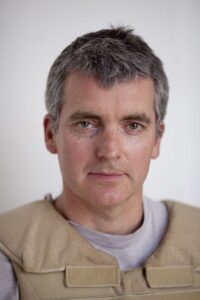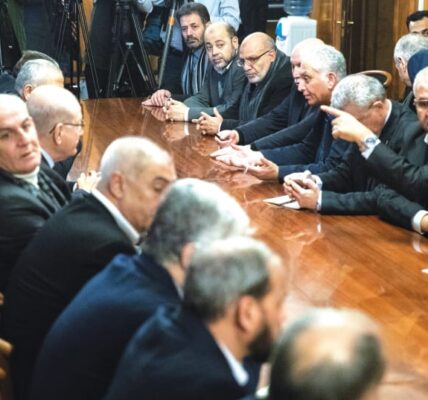Hostage Family Reveals How They Have Been Unable to Grieve for the Loss of Their Loved One Killed in the Hamas Attacks.
The family of a hostage held by Hamas have told of how they have been unable to grieve for three relatives murdered by the terrorist group.
Steve Brisley, who is campaigning to free his brother-in-law Eli Sharabi, also said he feared that time was running out for hostages.
Mr. Brisley, 47, from Bridgend in South Wales, also revealed that neither he nor his family had been able to grieve for his sister, Lianne Sharabi and her daughters Noiya, 16, and Yahel, 13, who were murdered in their home on Kibbutz Be’eri by Hamas terrorists on October 7th.
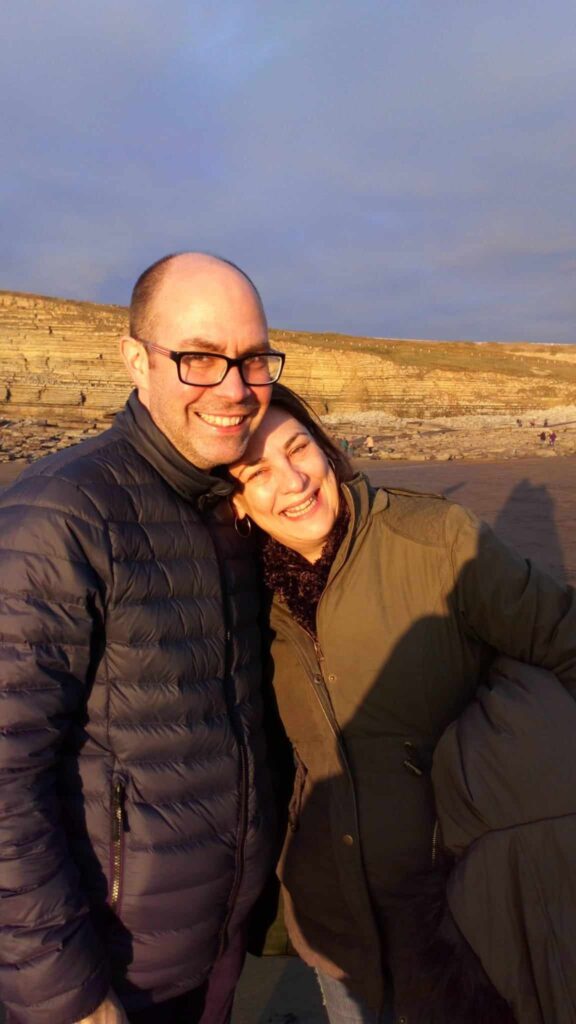
As part of his campaign, Mr. Brisley has met with Prime Minister Rishi Sunak and the Foreign Secretary David Cameron as well as giving speeches to MPs in the hope that they can bring international pressure to secure a hostage release deal.
But he said that the only real parties who can bring the hostage crisis to an end were the Israeli Prime Minister Benjamin Netanyahu and the Hamas leadership.
In an interview with National Security News, Mr. Brisley said: “The Israeli Prime Minister has made it absolutely clear that he will not do a deal with Hamas – so our nightmare continues.”
“The death of my sister has broken my parents. We had to watch my sister’s funeral on a WhatsApp video. We can’t grieve properly because Eli is still a hostage – we want to see him freed and then afterwards perhaps we will be able to properly grieve for my sister and my nieces.”
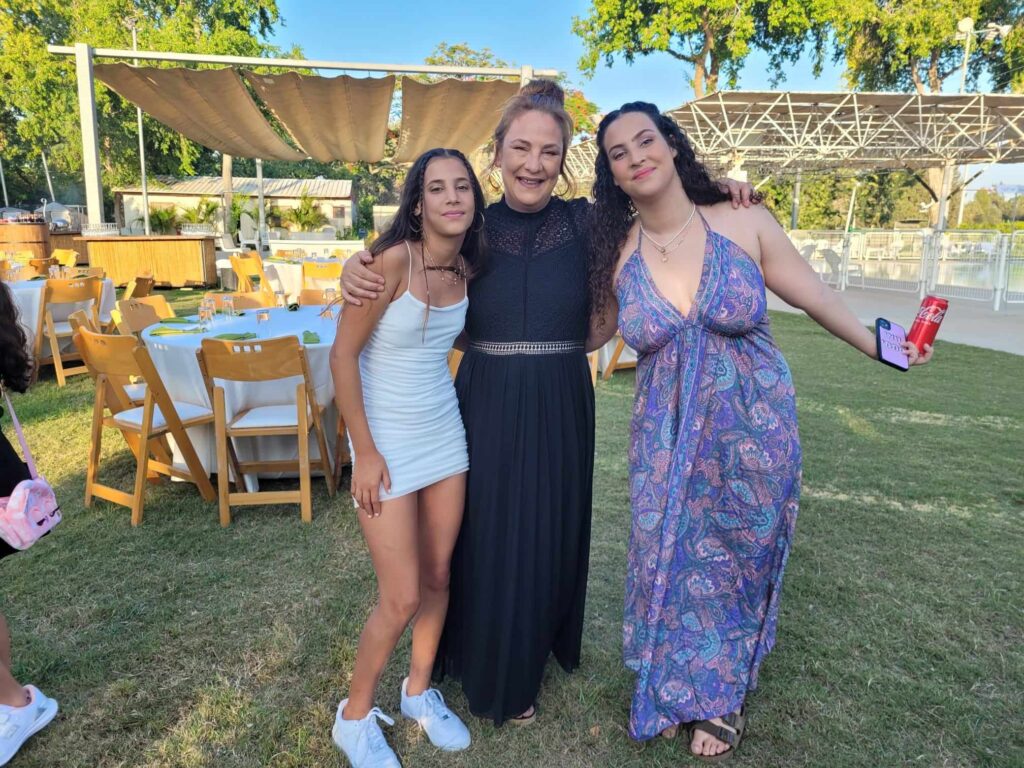
Mr. Brisley, who works as an investigator for the Public Services Ombudsman for Wales, said he now feared that his brother-in-law would die in the crossfire of the fighting in Gaza or be executed by Hamas.
He also said that he did not think the hostages were a priority for the Israeli government adding that Prime Minister Benjamin Netanyahu’s refusal to do a deal with Hamas was proof.
Mr. Brisley, who also has two daughters, said: “We want to get Eli back home. It’s clear that this can only be done through diplomacy and negotiation.”
Over 100 hostages have been released through diplomacy, whereas three have been freed through military action. I’m not a military strategist but the numbers say to me that the way to get them out is through diplomacy and deals.”
Mr. Brisley said that his sister Lianne, who he described as a formidable character, had lived in Kibbutz Be’eri for 28 years after joining as a volunteer when she was just 20 years old.
He said his sister saw an advertisement in a newspaper offering the opportunity to volunteer for three months on a kibbutz in Israel.
He said: “She was aged 20 and went away for three months, then that turned into six and then she met Eli, fell in love, and stayed. She lived there for 28 years and loved the life she had built for herself. She worked as a dental nurse and had a very nice life.”
“The family had a lovely house in a real community, where everyone knew everyone. The kibbutz had a swimming pool, a theatre and a supermarket. It was incredibly safe with no crime and was a wonderful place to bring up a family.”
“Lianne was a very good singer and an incredible clarinet player, with such a good ear that she could learn languages very easily and learnt Hebrew and was fluent.”
“Lianne was very sympathetic to the average Palestinian living under Hamas’ rule, so were a lot of people on the kibbutz. It was a very open, progressive community. That’s why it’s all the more horrific that the people who were murdered and kidnapped were often very sympathetic towards Palestinians.”
Mr. Brisley explained that he first learnt about the October 7th attacks while listening to the BBC and heard a story about a large number of missiles being fired into Israel from Gaza.
He added: “A missile attack was not unusual. Lianne had lived through several wars in Israel and her kibbutz had never been targeted so I wasn’t overly concerned.”
“I sent her a message saying, ‘I hear it’s getting a bit noisy. Are you OK?’ on WhatsApp, and that message has never been read.”
“Family members had also tried to get in touch, but we heard nothing and started to get a bit concerned. We then learnt that my oldest brother who lives in Canada had been in contact with Lianne earlier. In one message she said, “Oh God. There are terrorists in Be’eri. Shooting outside my house. I’ve never been this scared.”
The message was sent while Lianne, her husband Eli, their two daughters and the family dog, Mokka, had moved into a fortified room within their home which was designed to withstand a rocket attack. But it was not a safe room designed to keep out intruders.
As the terrorists began working their way through the kibbutz, murdering anyone they came across, Lianne and the girls frantically began sending messages on social media pleading for help.
Mr. Brisley continued: “The older of my two nieces Noiya had put an Instagram post up asking people to contact the security forces and tell them that Be’eri was under attack. After that, things went quiet, and we never heard anything more.”
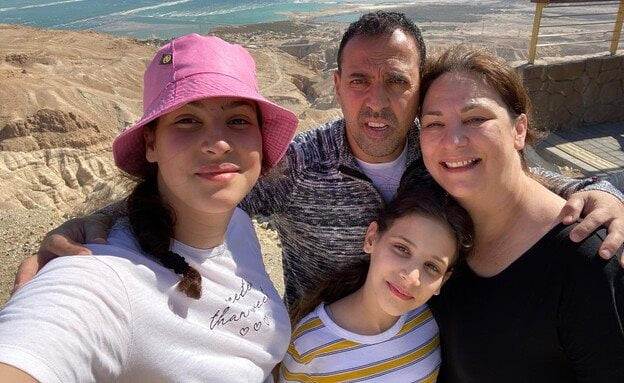
In the days that followed, Mr. Brisley’s family had to deal with rumours and misinformation as the full tragedy of the attack began to emerge.
He added: “That period was incredibly emotionally draining. My parents were supposed to be flying to Dublin that weekend to celebrate their wedding anniversary but that was obviously cancelled.”
“None of us slept for several days as we waited to hear what had happened. It took about 12 days to get the news that Lianne and the girls were definitely dead. Lianne was confirmed as dead first, then Noiya’s death was confirmed and then Yahel. They were identified through DNA and dental records. Many of the bodies on Be’eri were mutilated and burned and we don’t really know what happened to Lianne and the girls because there was no post-mortem, and the funerals took place very quickly.”
Mr. Brisley said that one of the worst moments in the whole terrible tragedy came when he had to tell his 79-year-old parents that their only daughter was dead.
He said: “My parents only live 300 yards away from me and when news came through that Lianne was dead, I had to tell them.”
“When I told mum that Lianne was definitely dead, she fell to the floor screaming – those screams will haunt me until the day I die. It’s the most horrific thing I’ve ever had to do. Both mum and dad just crumbled, and they are still struggling to deal with it.”
He said the family were unable to attend the funerals in person and instead watched them with his parents while sitting on a sofa in their bungalow.
Mr. Brisley said that his parents would visit the kibbutz at least twice a year, staying for two or three weeks, and they knew many of the residents.
He said: “They have been deeply affected, not just because they lost Lianne and the girls, but they feel very deeply about Be’eri’s loss as well.”
One brief moment of bittersweet relief came on November 3rd when Lianne’s husband’s family were visited by a member of the IDF who told them that Eli was alive but a hostage in Gaza.
He said that someone from Israeli intelligence told the family: “We can’t tell you how we know but we know Eli is a hostage in Gaza”.
Up until that point both families feared that Eli was dead, and he was one of the many bodies which hadn’t been identified.
He went on: “All we know is that up until November 3rd Eli was alive. None of the released hostages have given any indication that they have seen or spoken to him. We don’t really know what happened to him on the day of the attack because there were no eye-witness accounts. We don’t even know if Eli is aware that Lianne and the girls are dead. We don’t know if they were killed in front of him.”
“If he does get out of this alive, we may well have to break the news to him that his entire family – and they were his world – are dead.”
Eli’s brother Yossi was also taken hostage, but he has since died while being held captive. Hamas claims his death was caused by an Israeli airstrike, but Mr. Brisley believes that he may have been executed.
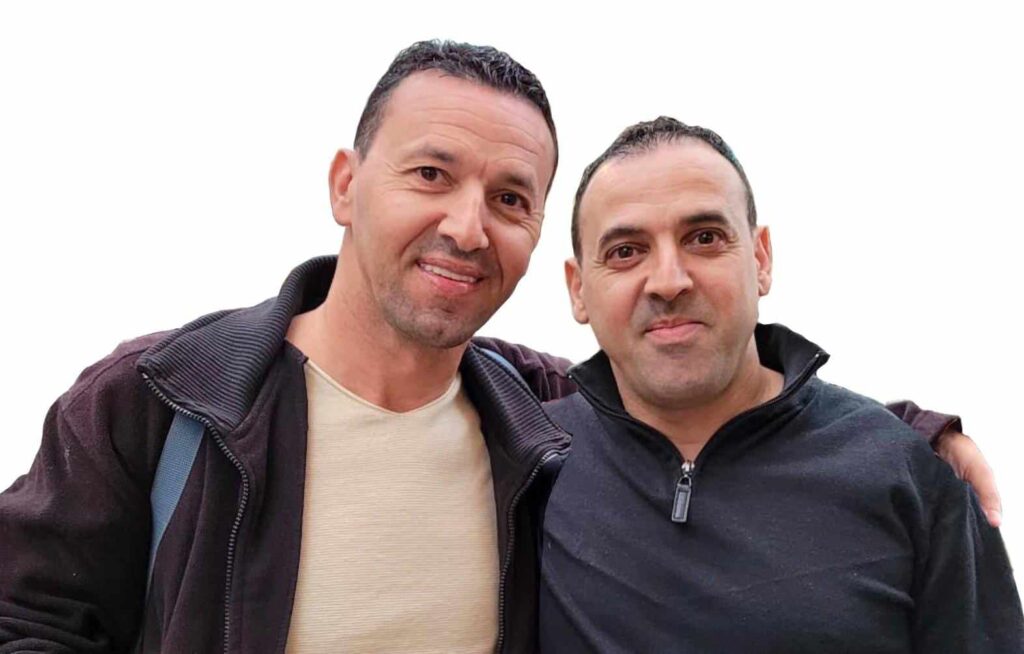
He said: “We knew from day one that Eli’s brother Yossi had been taken hostage because his wife and kids watched him being taken away in the back of a truck.”
The events of October 7th left Mr. Brisley’s entire family traumatised and unable to grieve for Lianne’s loss.
“I’m signed off from work. I don’t sleep very well, I have nightmares and I have difficulty concentrating,” Mr. Brisley explained.
“Until Eli’s situation is resolved, one way or the other, I don’t feel I can entirely switch onto my grief. I had assumed that all this would be over by now, especially after the hostage releases in November. So, I buried my grief down and concentrated on what I could do to get Eli and Yossi back. I’m getting a bit ragged around the edges now; I have been referred to counselling because I need to re-engage with the grief. I feel, and it’s the same for the rest of my family, that we’ve been cheated because we haven’t been able to grieve properly.”

